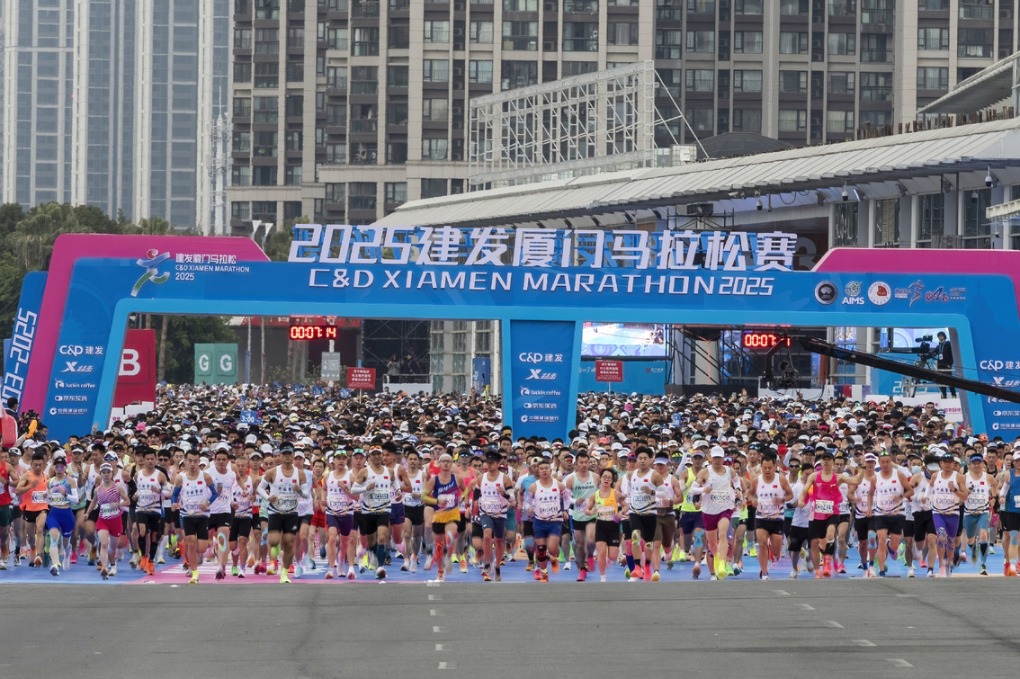Golden legacy is Games' greatest gift

Sustainable plans boost local communities

Beijing's vision of hosting a sustainable Winter Olympics is materializing in a big way, with the Games' venues and projects primed to benefit local communities and the economy far beyond the closing ceremony.
As the world shifts its focus to the upcoming Winter Games, Chinese organizers are not merely focused on delivering an excellent and safe Games on schedule, but are also banking on venues, services and infrastructure to facilitate sustainable regional development and boost people's well-being.
Owners and operators have drawn up post-Games plans for all newly built venues, while the efforts on ecological conservation, reducing carbon emissions and long-term winter sports promotion have yielded positive results, according to a sustainability report released by the organizing committee last month.
"This report shows that Beijing 2022 recognizes the responsibility to integrate sustainability principles throughout all stages of the Games' preparation," International Olympic Committee president Thomas Bach said in a video message sent to the news conference to release the report.
"Already now, these Games are providing tangible social and economic benefits for the people in Zhangjiakou and Yanqing."
Featuring a series of innovative solutions, such as repurposing existing venues, energy-efficient architecture and eco-friendly refrigeration, the preparations for the Beijing Winter Games are expected to shed light on a green and sustainable future for people's lives and relevant businesses in the three competition zones-downtown Beijing, its northwest Yanqing district and co-host Zhangjiakou in Hebei province.
The reuse of venues built for the 2008 Summer Games in downtown Beijing-such as the transformation of the National Aquatics Center into an "Ice Cube" for the curling competition, and the Wukesong Arena's switch from hosting basketball to ice hockey-sets the standard for the post-Games operations of permanent Olympic venues.
"The highlight is not about refurbishing old venues and turning them into something totally different," said Liu Yumin, director of planning, construction and sustainable development of the Beijing 2022 organizing committee. "It's about diversifying the functions of those venues and making them compatible with various purposes while expanding their businesses."
As the only newly built competition venue for the Games in downtown Beijing, the National Speed Skating Oval has adopted a cooling system using carbon dioxide as a clean refrigerant, instead of the harmful substance Freon, to make ice for skating tracks.
It marks the first time in Olympic history that CO2 refrigerant will be used at a competition venue of such scale, while organizers expect to transfer the efficient and stable cooling system to more commercial rinks and skating centers after the Games.
The design of the 12,000-square-meter ice surface at the venue, compared to traditional speed skating venues with only an oval-shaped circle track, leaves enough rink space at the center to accommodate more activities, such as curling, figure skating and hockey, said Li Sen, director of Beijing 2022's general planning department.
"It will help diversify business operations for the venue owner after 2022," Li said. "Grassroots winter sports promotion and recreational activities could be staged here as well in the breaks between world-class speed skating events."
Impressive sustainable efforts outlined in the report also include the ecological conservation, natural environment protection and water-saving projects implemented at mountain venues in Yanqing and Zhangjiakou's Chongli district, where the construction of ski slopes, athletes' villages and snow-making facilities have been carried out prudently under the guidance of experts to avoid disturbing wild animals, forest destruction and wasting resources.
At the foot of the National Alpine Skiing Center on Xiaohaituo Mountain in Yanqing, more than 24,000 trees have been transplanted from ski runs to two nearby forest parks totaling 53 hectares in area.
Over 90 percent of the transplanted trees have survived and flourished in their new home, according to the district government.
"From using 2008 venues to the many measures to minimize environmental impact and reduce carbon emissions, all these initiatives underline the commitment of Beijing 2022 to contribute to sustainable development in China," said Bach.
Most Popular
- Pistons tame Wolves despite Edwards' heroics
- City shows a bit more Pep with successive wins
- Arteta aghast at Brighton penalty as Gunners misfire
- A marathon year for Belgian amateur
- As life without Butler begins, Heat fails to ignite
- Gauff, Fritz lead US to United Cup tennis title






























